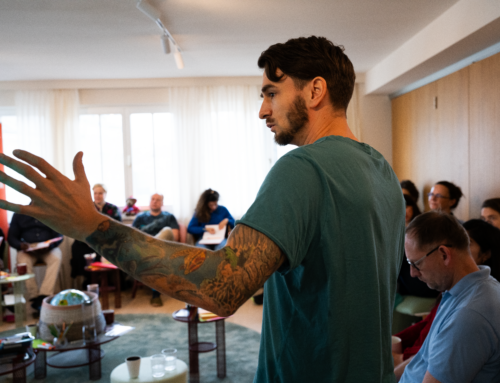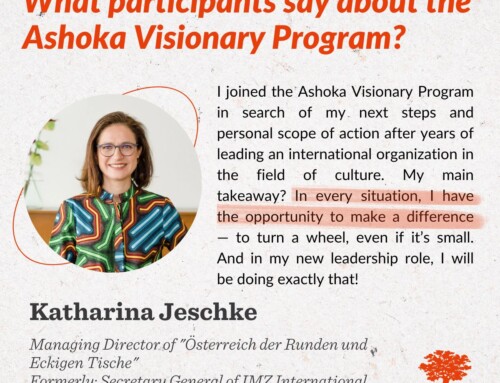Emmanuel de Lutzel of BNP Paribas: the personal journey of an intrapreneur in microfinance

Emmanuel de Lutzel is Vice President Social Business at BNP Paribas. As an intrapreneur, he has been building since 2007 the international microfinance activities of the bank, reaching 40 microfinance institutions in 18 countries. In 2012, he initiated the social business activities which support some 600 organizations in Europe. He is also the imitator of two internal associations of volunteers at BNP Paribas, supporting microfinance and social entrepreneurs in 10 countries with some 1000 volunteers.
His book on the Intrapreneurship Journey “Transformez votre entreprise de l’intérieur: Le guide de l’intrapreneur social” (only available in French language) can be purchased here.
How do you find an intrapreneur in a big company?
It’s very important to talk to the person rather than the function to identify the real intrapreneurs in a big company. In my book “Transformez votre entreprise de l’intérieur: Le guide de l’intrapreneur social” I refer to the myth of Penelope. Penelope was waiting for Ulysses to come back from his travels. She was working on a tapestry and believed that she would see Ulysses again by the time she would finish the tapestry. As Ulysses did not come back, she started to undo her night’s work during the day, over and over again. That is what I see also see in big companies. There are people waiting like Penelope. During the day they are the perfect employee from 9 to 5, fully committed to their corporate mission. And in the evening they are working with NGOs and become engaged citizens. And some of them think – including myself – that it should be possible to be the same person during the day and during the evening. The entrepreneur is the one who finds the link between the employee and the engaged citizen when searching for intrapreneurs in a big company, knowing that their business model can also be used for a social purpose. You will not find the intrapreneurs in an organigram.
How did you assess the social impact of your activities in micro-finance?
Social impact is very important. When I started to work on micro-finance, I already started to calculate the number of people we would be able to reach. A simple calculation. Microcredits in development countries are between 50 and 500 Euro. It is very motivating when you imagine how many people can be impacted in developing countries by using moderate amounts of money from 10-15 millions. Of course I discovered later that measuring the impact, the changes in the lifes of people, is more complicated than assessing the output. It’s important to have some measurable impact. You need however to balance the time and resources you use to reach the impact and to assess the impact. Not everything that is important is measurable. There are also impacts on the company and the people within the company. We can not measure it, it is a feeling, but it is almost as important as measuring the external impact.
Did you have the opportunity to experience the social impact?
I have been visiting a lot of micro-finance organizations and social businesses. And I must say that each time I do this – even after ten years – I’m really happy to see the results of my actions, knowing that it is not only my effort, but a collective effort. I think it is important to keep the feeling that what you are doing has consequences, even if indirect and through an impact chain of many other people and their actions. It is always important to see the real people behind the numbers.
How did your professional role change through your intrapreneurship journey?
At the beginning when I started everybody thought that the idea is totally mad. CSR at that time was at the very beginning. It is more popular now, in particular the social aspect of CSR: Doing good by doing business. Banks have the reputation to be very serious businesses. If a bank is entering micro-finance and proves that micro-finance has a measrubale economic and social impact, it has a leaderchip effect that is quite important. Not only for our direct environment, but also through the example you give for the financial community and also for other companies.






